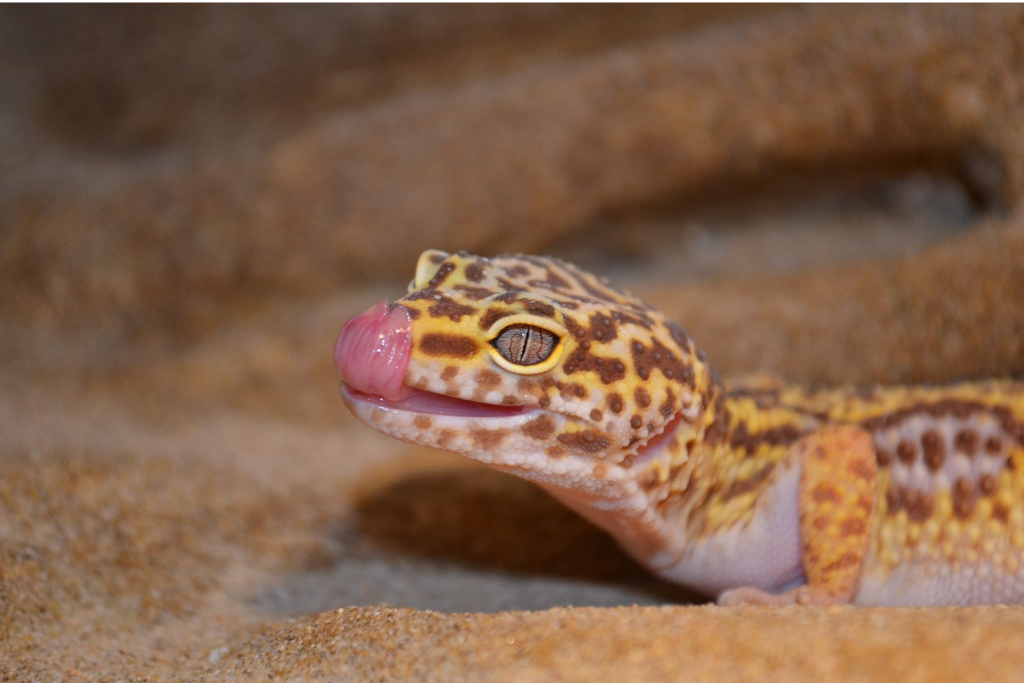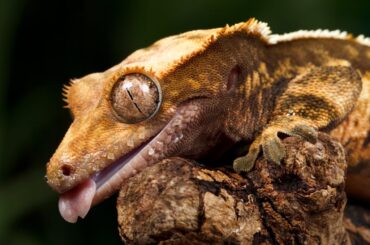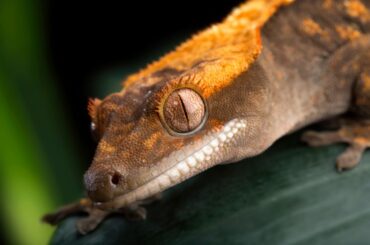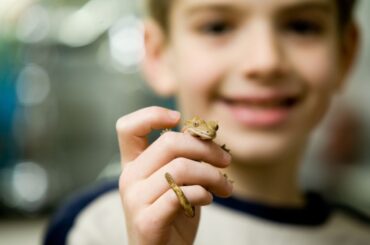Why do leopard geckos make great pets? And did you know that keeping them healthy is important for a happy companionship?
Leopard geckos are fascinating creatures that many people love to have as pets. They are small lizards with beautiful patterns on their skin. But just like any other living beings, they can sometimes get sick.
Looking at its eyes is one way to tell if a leopard gecko is not feeling well. If the eyes look sunken or hollow, it could mean that the gecko is not in good health.
Why is this important? Well, sunken eyes can indicate dehydration or illness in leopard geckos. It’s a warning sign that something might be wrong.
This article will discuss some prevention tips and ways to manage sunken eyes in leopard geckos. Keep reading to learn more and ensure the well-being of your scaly friend!
What Causes Sunken Eyes In Leopard Geckos?
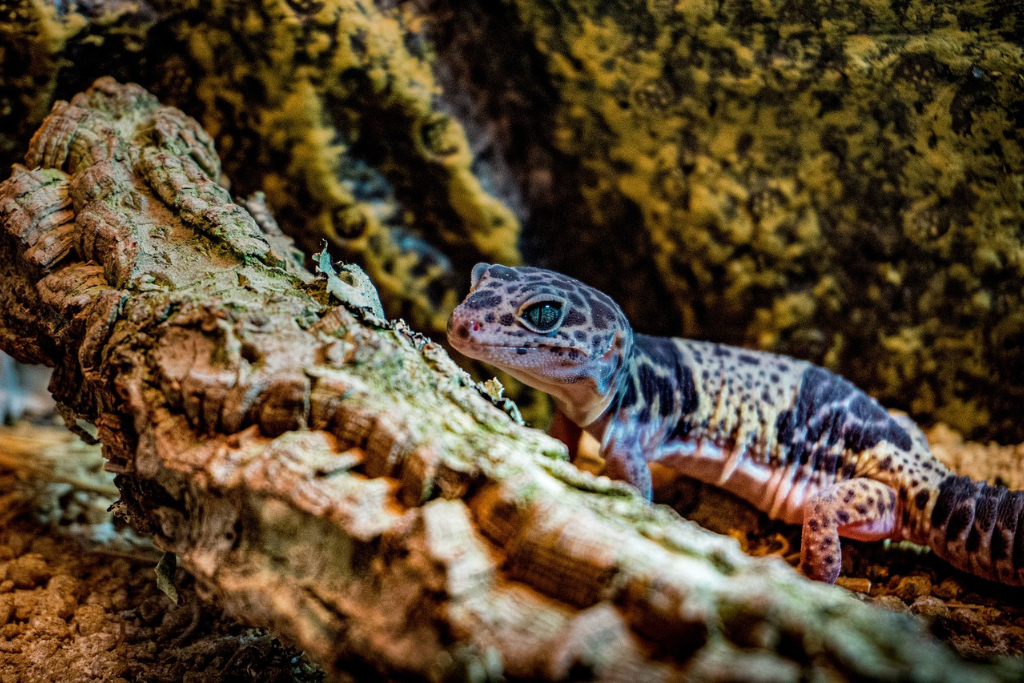
Sunken eyes in leopard geckos occur when their eyes appear hollow or deeper than usual. Normally, a leopard gecko’s eyes are round and full, but various factors can cause them to look sunken.
In some cases, sunken eyes are completely normal. Leopard geckos may naturally exhibit slightly sunken eyes during the shedding process or when in a deep sleep. This occurrence is nothing to be concerned about, as their eyes will return to their normal state once the shedding or sleeping phase is complete.
However, sunken eyes can also indicate an underlying health issue. If a leopard gecko’s eyes remain sunken for an extended period, or if they exhibit other symptoms, such as loss of appetite or weakness, it could be an indication of illness. In such situations, it is advisable to consult a veterinarian who specializes in reptiles to ensure proper diagnosis and treatment.
Normal Occurrences of Sunken Gecko Eyes
Leopard geckos may naturally have sunken eyes at times, which is perfectly normal. During sleep or feeding, their eyes might appear slightly sunken. This is because geckos lack eyelids, and their eyes naturally retract into their sockets for protection during these activities.
If you see your gecko with sunken eyes while sleeping or eating, there’s no need to worry. It’s a natural defense mechanism.
Additionally, changes in lighting can temporarily make a gecko’s eyes look sunken. When the lighting around them shifts, their eyes may adjust and appear slightly sunken. This is a normal reaction and their eyes will return to their usual state.
Unhealthy Leopard Gecko Sunken Eyes as a Sign of Illness
Sunken eyes in leopard geckos can indicate illness and should be taken seriously. Dehydration is a common cause of sunken eyes in sick geckos. If you observe this, it’s crucial to act promptly.
Addressing dehydration is essential for the well-being of the gecko. Ensure they have access to clean water and encourage them to drink. Seeking veterinary care for proper treatment is advisable.
Retained eye caps, where the old skin covering the eyes doesn’t shed properly, can also result in sunken eyes.
Another possible cause is metabolic bone disease, which affects the gecko’s bones and can lead to sunken eyes and other symptoms. If you suspect these issues, it’s important to consult a veterinarian who can diagnose and provide appropriate treatment.
What to Do if You Suspect Sickness
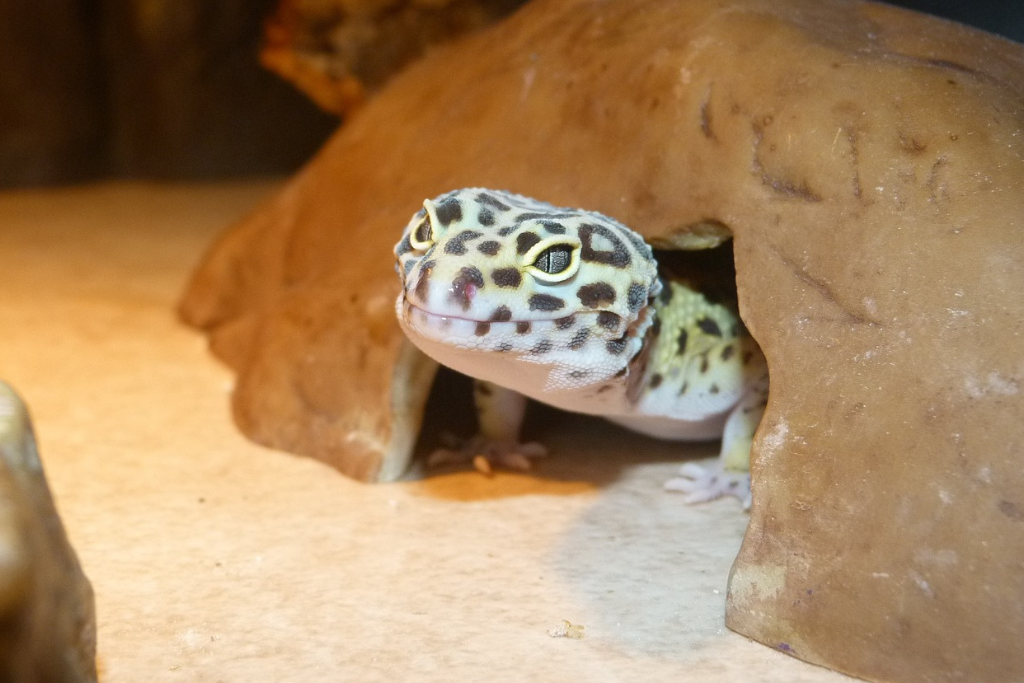
If you notice sunken eyes in your leopard gecko and suspect they may be unwell, it’s important to take appropriate action to ensure their health and well-being. Here are some steps to follow:
Monitor Water Supply
Keep an eye on your gecko’s water bowl and ensure it is always filled with fresh water. Dehydration can cause sunken eyes, so providing an ample supply of water is crucial.
Check Habitat Conditions
Maintain appropriate humidity levels and temperature range in your gecko’s habitat. Leopard geckos require specific environmental conditions to stay healthy. Make sure the humidity is neither too high nor too low, and the temperature is suitable for their well-being.
Assess Eating Pattern
Observe your gecko’s eating habits. A loss of appetite or reduced food intake can be a sign of illness. If you notice any significant changes in their eating behavior, it’s important to take action.
Seek Veterinary Advice
If your gecko’s condition does not improve, or if you are concerned about their health, consult a veterinarian who specializes in reptiles. They have the expertise to diagnose and provide appropriate treatment for your gecko.
Follow Professional Guidance
Follow the veterinarian’s instructions and recommendations carefully. They may suggest additional tests or treatments to address the underlying cause of the sunken eyes and any related health issues.
Provide a Comfortable Environment
Create a comfortable and stress-free environment for your gecko. Ensure they have appropriate hiding spots, a clean enclosure, and a balanced diet. A healthy and stress-free gecko is more likely to recover quickly.
Be Proactive
Regularly monitor your gecko’s overall well-being. Look out for any unusual behaviors, changes in appearance, or other signs of illness. Being proactive can help detect potential health issues early on and prevent further complications.
Remember, while sunken eyes can have benign causes, it’s always better to err on the side of caution and seek professional advice to ensure your gecko receives the necessary care and attention.
Prevention Ensuring Geckos’ Eye Health
Taking care of your leopard gecko’s eyes is essential for their overall health and well-being. By following these simple steps, you can help ensure that their eyes stay healthy, and they can enjoy a happy and comfortable life as your pet.
Maintain Proper Enclosure Conditions
To keep your gecko’s eyes healthy, it’s important to create the right environment in their enclosure. This means maintaining the temperature and humidity levels at appropriate ranges. Ask an adult for help in setting up the optimal conditions for your gecko’s habitat.
Provide a Balanced Diet
A nutritious diet plays a significant role in maintaining your gecko’s eye health. Make sure to offer a variety of foods, including live insects, like crickets and mealworms, as well as vitamin-rich fruits and vegetables. This balanced diet supports their overall well-being, including their eyes.
Choose Safe Substrates
The material you use as substrate in your gecko’s enclosure can impact their eye safety. Avoid using sharp or rough materials that could potentially hurt their delicate eyes. Instead, opt for soft substrates, like reptile carpets or paper towels. Ask an adult to assist you in selecting a suitable substrate.
Regular Check-Ups
Just like humans, geckos also benefit from regular visits to the veterinarian. Schedule check-ups with a reptile specialist to have your gecko’s eyes examined and ensure their overall health. Early detection of any issues can prevent them from becoming more serious.
Observe Behavior and Appearance
Be observant of your gecko’s behavior and appearance. Keep an eye out for any signs of eye problems, such as redness, discharge, or frequent rubbing of the eyes. If you notice anything unusual, seek advice from a veterinarian promptly.
Gentle Handling
When interacting with your gecko, handle them with care to avoid accidental eye injuries. Be gentle and avoid putting pressure on their eyes. Always support their body properly when holding them. Ask an adult for guidance on how to handle your gecko safely.
Conclusion
Taking good care of your gecko’s eyes is crucial for their health. Keep an eye out for any changes, like sunken eyes, which may indicate a problem. If you notice prolonged sunken eyes or other concerning symptoms, take action.
To prevent eye issues, maintain a suitable environment in their enclosure, provide a balanced diet, and use safe substrates. Stay attentive and seek help when needed to ensure your gecko stays healthy and happy. Being a responsible owner means giving your gecko the best care possible.
FAQs
Can Leopard Geckos Have Sunken Eyes When They are Sleeping?
Yes, it’s normal for their eyes to look a bit sunken while they sleep, to protect their eyes.
Are Sunken Eyes in Geckos Always a Sign of Sickness?
No, sunken eyes can be normal in certain situations, like when geckos sleep or eat.
How Can I Prevent My Gecko from Getting Sunken Eyes?
Maintain optimal enclosure conditions, provide a balanced diet, and avoid using sharp substrates.
Why is Dehydration a Common Cause of Sunken Eyes in Geckos?
When geckos don’t have enough water in their body, their eyes can look sunken.
Can Changes in Lighting Cause Temporary Sunken Eyes in Geckos?
Yes, sudden changes in lighting can make their eyes temporarily appear sunken.
What Should I Do if I Suspect My Gecko has Sunken Eyes Due to Dehydration?
Ensure your gecko has clean water access, and consider visiting a veterinarian for assistance.
Can Retained Eye Caps Cause Sunken Eyes in Geckos?
Yes, if the old skin covering their eyes doesn’t come off properly during shedding, it can cause their eyes to appear sunken.

